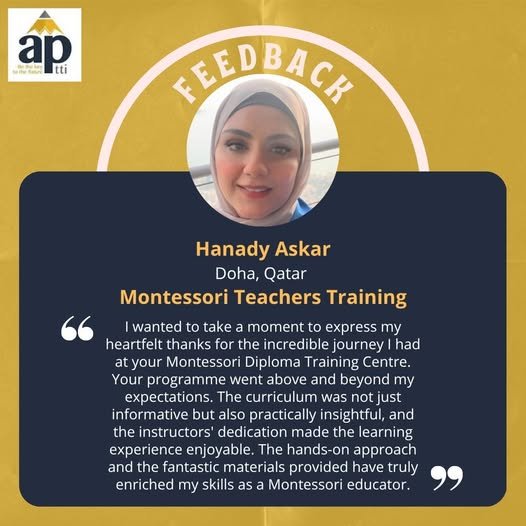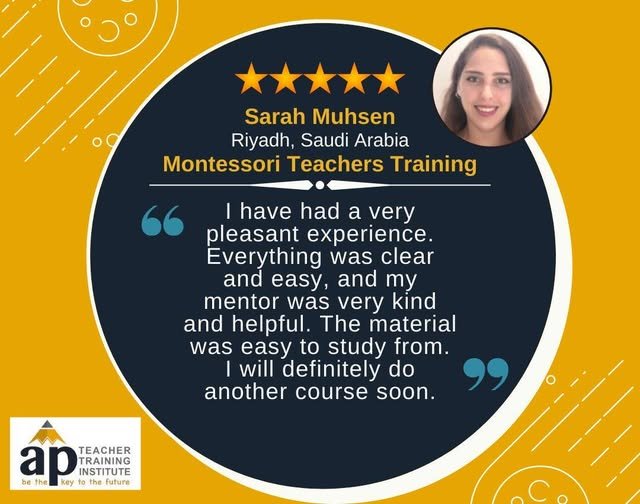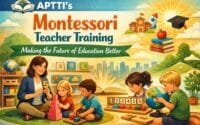Montessori Teacher Training for Parents | Home Education for Toddlers
Introduction
The early years of a child’s life are the most crucial for growth and development. For parents, understanding how to nurture these years can make a lifelong impact. With the help of Montessori teacher training, parents can create a home environment that inspires curiosity, independence, and confidence. This approach empowers caregivers to guide toddlers through practical activities, respect their individuality, and prepare them for future learning with a strong foundation.
Table of Contents
- What is Montessori for Parents?
- Why Home-Based Montessori Works for Toddlers
- Core Principles of Montessori Parenting
- Setting Up the Right Environment at Home
- Everyday Montessori Activities for Toddlers
- Balancing Freedom and Structure in Learning
- The Role of Observation in Montessori Parenting
- Connecting Parenting Skills to Montessori training course
- How Montessori teacher training course Supports Parents
- Benefits of Using Montessori training online
- Integrating Skills from a Montessori course online into Home Education
- Common Mistakes Parents Should Avoid
- Frequently Asked Questions (FAQs)
- Conclusion
What is Montessori for Parents?
Montessori is more than a classroom method—it’s a life approach that values respect, independence, and hands-on learning. Parents adopting Montessori principles learn to observe, guide, and encourage their child’s natural curiosity. This helps toddlers develop critical thinking, problem-solving, and self-discipline in a nurturing and prepared home environment.

Why Home-Based Montessori Works for Toddlers
A familiar environment helps toddlers feel secure, making them more open to learning. Montessori at home allows personalized activities that match a child’s interests and pace. This flexibility ensures toddlers enjoy learning while building essential life skills without pressure, helping them grow emotionally and socially.
Core Principles of Montessori Parenting
- Montessori parenting is built on five pillars:
- Respect for the child
- Absorbent mind
- Sensitive periods
- Prepared environment
- Self-directed learning
By embracing these, parents can guide toddlers toward independent thinking while offering a safe space for exploration and creativity.
Setting Up the Right Environment at Home
A Montessori home environment is calm, uncluttered, and tailored to the child’s needs. This includes low shelves, child-sized furniture, and accessible learning tools. Every material should have a purpose, encouraging independence. Safety and simplicity are key, allowing toddlers to move freely and engage meaningfully.
Everyday Montessori Activities for Toddlers
- Practical life activities are at the heart of Montessori learning. Parents can try:
- Pouring water between cups
- Sorting fruits or vegetables
- Folding napkins
- Arranging flowers
- Matching objects with pictures
These activities build fine motor skills, patience, and focus, preparing children for more complex tasks in the future.
Balancing Freedom and Structure in Learning
While Montessori encourages freedom, structure ensures consistent growth. Parents can offer choices within limits, such as selecting between two activities. This balance nurtures independence while maintaining a sense of routine, which is vital for toddler development.

The Role of Observation in Montessori Parenting
Observation allows parents to understand their child’s unique needs and interests. By watching closely without interrupting, caregivers can select suitable activities and identify areas where a toddler may need extra guidance or encouragement.
Connecting Parenting Skills to Montessori training course
A Montessori training course teaches the foundational theories and practices that guide both teachers and parents. By learning these techniques, parents gain insights into child psychology, developmental stages, and how to adapt learning spaces to fit a toddler’s evolving needs.
How Montessori teacher training course Supports Parents
A Montessori teacher training course equips parents with practical tools for managing and guiding toddlers effectively. It covers lesson planning, activity selection, and strategies for fostering independence, ensuring that home learning is as effective as classroom education.
Benefits of Using Montessori training online
Enrolling in Montessori training online offers parents flexibility to learn at their own pace while balancing family responsibilities. These programs often include videos, guides, and live sessions, making it easier to understand Montessori methods and immediately apply them at home.

Integrating Skills from a Montessori course online into Home Education
A Montessori course online allows parents to access global expertise without leaving home. By practicing these skills daily, parents can create activities that match their child’s interests, turning everyday moments—like cooking or gardening—into valuable learning experiences.
Common Mistakes Parents Should Avoid
- Overloading the child with too many activities
- Choosing materials that are too advanced
- Interrupting focused play
- Ignoring the child’s pace
- Being inconsistent with routines
- Avoiding these ensures that learning remains joyful and stress-free.
Frequently Asked Questions (FAQs)
Q1. Can Montessori be implemented without special materials?
Yes, many Montessori activities use common household items adapted for learning.
Q2. How much time should parents spend on activities daily?
Short, consistent sessions of 20–30 minutes work best for toddlers.
Q3. Does Montessori replace preschool?
It can prepare children for preschool but works best as a complement, not a replacement.
Q4. Is Montessori suitable for all toddlers?
Yes, it can be adapted to suit every child’s personality and developmental stage.
Conclusion
Adopting Montessori principles at home empowers parents to raise confident, capable, and curious children. Through Montessori teacher training, caregivers learn to observe, guide, and inspire toddlers effectively. This approach transforms everyday moments into opportunities for growth, preparing children not just for school but for life itself.


